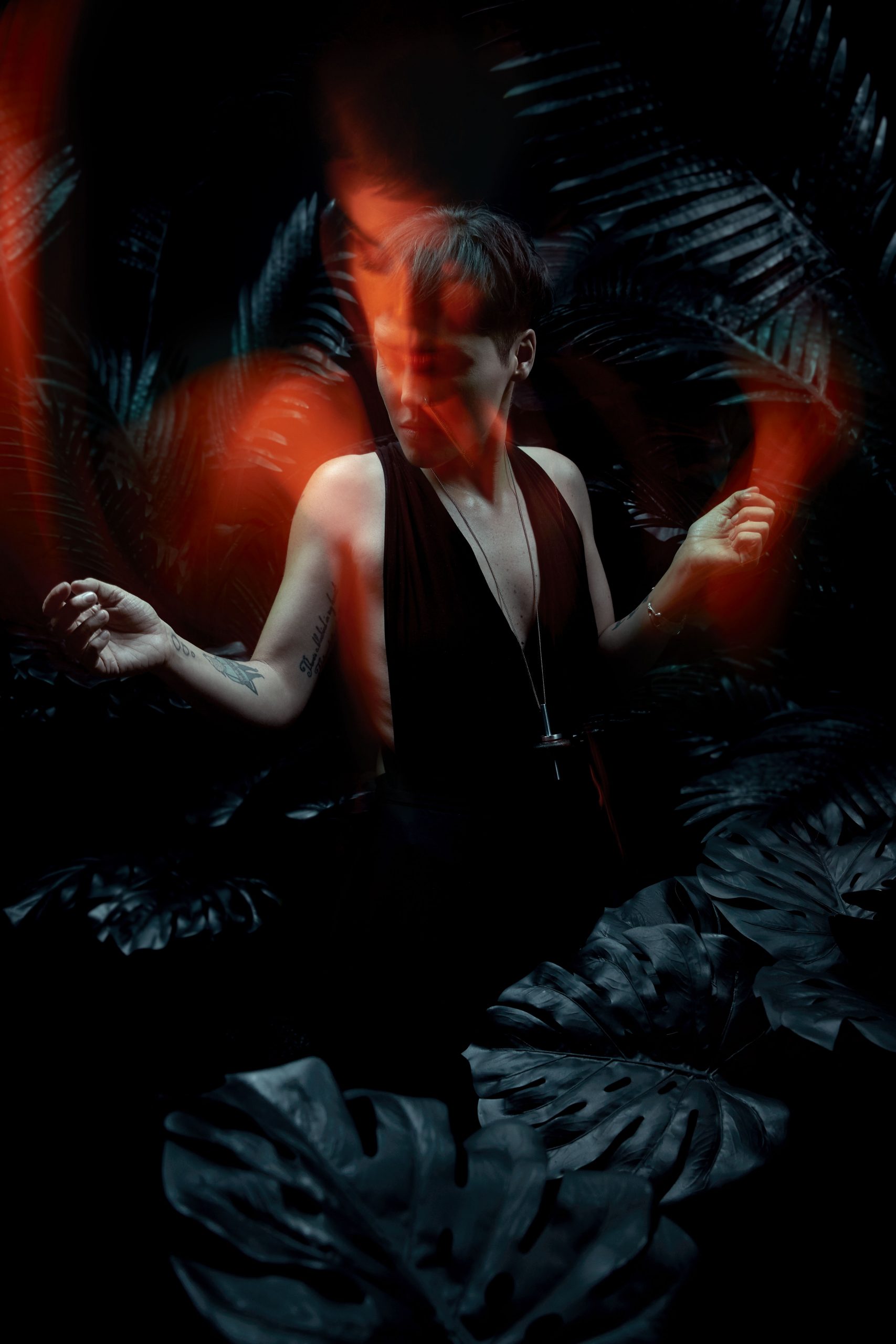Cueca is the national dance of the country of Chile. Having roots that draw from both the Native American and African cultures, this traditional dances, using scarves or handkerchiefs, symbolizes the courtship between a chicken and a rooster. I bring this up only to bring to your attention the symbolism and traditions of a proud country. It’s music, just like every other country, has evolved and still contains remnants of another life.
INSTAGRAM: https://www.instagram.com/rubiomusic_/
My listening experience with Chilean singer/producer/percussionist, Francisca Straube, who records under the name Rubio, recalls the pride of generations past. Rubio’s modern tapestry bridges together the two worlds. Her second album, Mango Negro is out now. It’s a follow-up to 2018’s PEZ, and her earlier 2020 releases La Pérdida EP and La Existencia. She has a stunning music bedrock with mysterious or murky beats and can easily go from melancholy (“Nudo”) to complex and happy (“Mango Negro” and “Volver”). Lyrically, she sings in Spanish, except for some key spots where she mixes in a few English-speaking phrases.
I surmise that Rubio tackles on a lot of subjects, including one’s place in the world and how we all fit into this ecosystem. Many of the drum beats in the 15-tracks have a hollower-sound. They remind me a lot of a rain machine drum, or a jungle-like tone. She often flowers the songs with sunbursts and warm shards. In “Tormento del SXXI”, which comes near the end of the album, the bouncy yet airy beat bolsters her pop-like vocals. She doesn’t sing quite as sensual in this song, as she does in some of the earlier tracks like “Oro” and “Volver”.
“Tormento” has a slight flute-like arrangement that contributes to the ebb and flow. Maybe it represents taking a deep breath, finding the right words to say before you say them aloud. I would also highly suggest listening to “Ir” from the first half of the album. This song had me hitting repeat a few times. I’m still mulling why I like it so much. I just do. The way she ‘coos’ is like champagne across white lights.
The final three tracks, “La Especie”, “Sólo Quiero Que Me Salves Tu” and “El Fruto” continue the listener down a road of stoic beats meshed with inner emotions. Rubio tethers the listener to the lingering beats just as much as she ties them to the pulsating and yearning in her voice. Without knowing exactly what she’s saying, which isn’t a bad thing, you have to fill in the blanks on your own. I appreciated that and I can hear the love and the passion in her voice. She can really sing, and these tracks acoustically would be poignant. Believe me, though, I loved the whimsical tracks and the trap leanings. I can hear these songs being played during a fashion show, with the models walking the catwalk to these mesmerizing beats. Rubio excels at creating lasting moments. She’s not just sitting behind the mic and running together a few Spotify playlists. Her work gives Electronic Music its artistry card.
Jodi Marxbury
